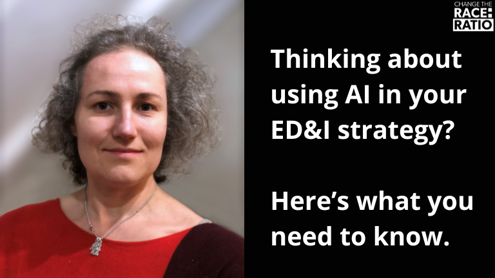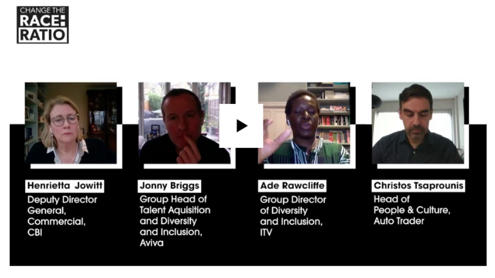Our regular Knowledge Shares are a deep dive into a subject that’s of interest to ED&I leaders.
We recently covered ethnicity data; how to use it beyond pay gap reporting to drive informed decision making and targetted initiatives as well as enabling progress towards a more equitable workplace.
Our panel; Jo Stansfield, Founder, Inclusioneering Limited, Paul Modley, Director of Diversity, Equity and Inclusion, AMS, Devi Virdi, Group Head of Diversity Equity and Inclusion, Centrica and Dr. Fatima Tresh, Senior Manager, Diversity Equity and Inclusiveness, EY UK.
Let's delve into our panel’s insights on practical steps that businesses can take to transition from collecting ethnicity data to driving actionable insights.
‘Collecting data is just the start.’
Our panel agreed that data collection was only the start of the journey; it’s the strategic actions taken afterward, driven by insights gleaned from data analysis, that truly matter.
Why? Because data alone won’t show the entire landscape; qualitative assessment and experimental insights paint a more comprehensive picture. It's at this intersection that meaningful change occurs, leading to greater progress in dismantling barriers for racial and ethnic minorities.
‘Data is a foundation for building actionable plans.’
Each panellist offered their perspective on the significance of data, from providing business with a robust foundation for building actionable plans and initiatives to fostering transparency within company pay structures.
Data can play a crucial role in identifying and addressing challenges within specific groups and departments too, meaning that organisations can pinpoint areas of concern, and develop targetted interventions to address these issues effectively.
The benefits of using data extend beyond informing decision making; by leveraging data, organisations can challenge entrenched narratives and assumptions.
And data can facilitate meaningful conversations with business leaders, leading to decision-making that’s grounded in data-based evidence as well as more qualitative insights.
Artificial Intelligence (AI)
AI plays a significant role in deriving insights from large datasets, but it comes with a caveat. AI systems learn from human-generated data, making it challenging to completely eradicate bias.
And while AI holds immense potential, it isn't a panacea or a shortcut to solving complex problems. Effective utilisation of AI needs the expertise of AI specialists and data analysts. Maintaining oversight and compliance is imperative to uphold ethical standards and ensure responsible AI deployment.
Ultimately, while AI presents significant opportunities it's vital to proceed with caution when integrating it into data analysis processes. A deliberate approach is essential to harness its capabilities while mitigating potential risks.
Intersectionality
On the subject of intersectionality, clear objectives are essential when conducting targetted analysis.
What data can do, is to serve as a catalyst for fostering discussions within smaller groups, leading to more in-depth qualitative analysis.
And by using data as a guide, organisations can identify areas for further exploration and conversation, allowing for a deeper understanding of the underlying barriers at play.
Our panellists' final takeaways
Devi: Recognise that there are no quick fixes or silver bullets. Data is something that needs to be consistently worked at, over time.
Fatima. Don’t focus solely on the ‘outcome metric’ – think about the process. Process can tell you where to target your initiatives and mean that you analyse the data more deeply.
Paul: Data is a conversation, so keep feeding progress back to your employees.
Jo: Working on data is all about trust. Use data responsibly and remember –data collection is a two-way process.






